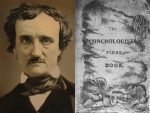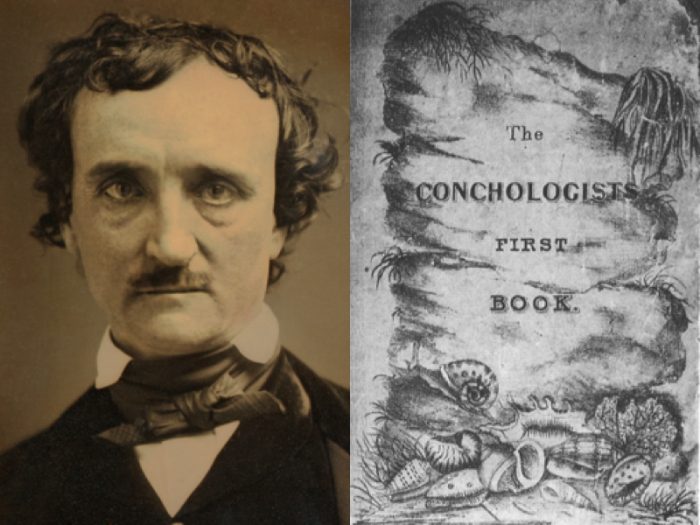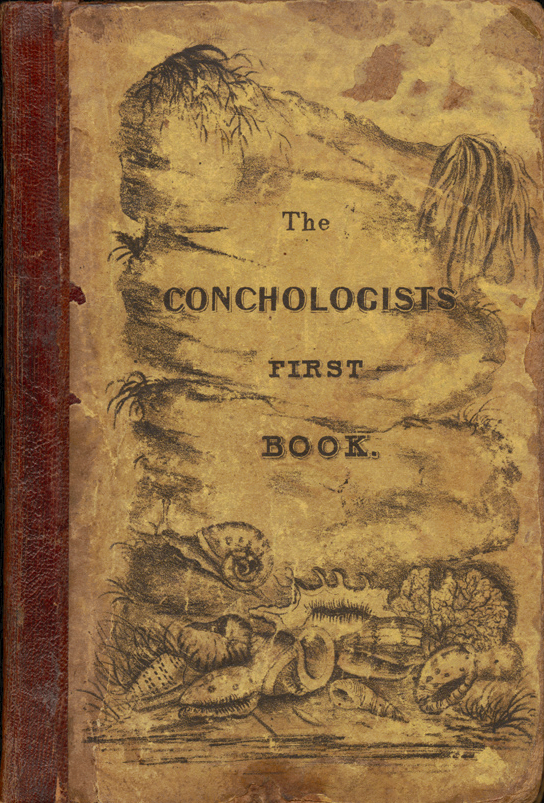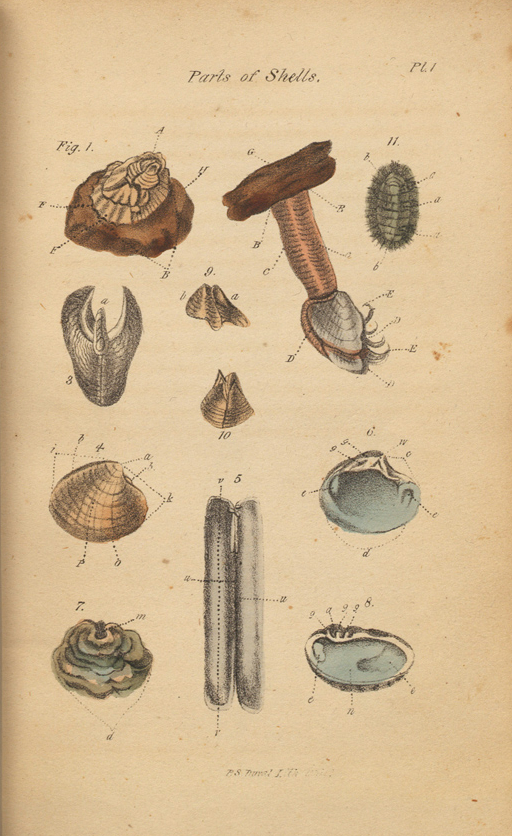[Most Recent Entries] [Calendar View]
Thursday, April 6th, 2017
| Time | Event |
| 7:30a | Steve Martin Will Teach His First Online Course on Comedy 
Can comedy be taught? The question has no clear answer, but if it can, Steve Martin would surely occupy the highest rank of comedy teachers. He could probably teach a fair few other crafts as well: besides his achievements as an innovator in stand-up as well as in other forms of comedy — famously appearing on Saturday Night Live so many times that even some of his fans mistake him for a regular cast member — he’s also established himself as an actor, as an essayist and novelist, and even as a respected bluegrass banjo player. Still, despite his impressive artistic Renaissance-man credentials many of us, at the mere mention of Steve Martin’s name, laugh almost reflexively. Hence his place at the front and center of “Steve Martin Teaches Comedy,” a new online course from Masterclass, the education startup whose faculty roster, as we’ve previously featured, also includes the likes of Werner Herzog and Aaron Sorkin. “We’re going to talk about a lot of things,” says Martin in the course’s trailer above. “We’re going to talk about my specific process, performing comedy, we’re going to talk about writing.” For a cost of $90, Masterclass provides more than 25 video lessons, a downloadable workbook with supplemental lesson materials, and an opportunity to upload your own material for critiques by the rest of the class as well as maybe — just maybe — by Martin himself. Whether or not a master comedian can pass along his knowledge as a math or a language teacher can, anyone who’s paid attention to Martin’s comedy so far, as well as his reflections on comedy, can sense how much intellectual energy he’s put into figuring it all out, even at its extremes of absurdity, for himself. Students unwilling to follow suit need not apply, nor those worried about landing agents and getting headshots, for the esteemed instructor makes it clear up front that he grapples only with the most important question in comedy, as in life: “How do I be good?” You can sign up here. Note: If you want to hear Steve Martin narrate his memoir, Born Standing Up: A Comic’s Life, you can always sign up for Audible.com’s 30-day free trial, and download it for free. (Everyone who signs up for a free trial with Audible gets two free audiobooks. Get more info on the free trial here.) Related Content: Steve Martin on the Legendary Bluegrass Musician Earl Scruggs Steve Martin Writes a Hymn for Hymn-Less Atheists Steve Martin, “Home Crafts Expert,” Explains the Art of Paper Wadding, Endorses Bob Kerrey Steve Martin Releases Bluegrass Album/Animated Video Based in Seoul, Colin Marshall writes and broadcasts on cities and culture. He’s at work on a book about Los Angeles, A Los Angeles Primer, the video series The City in Cinema, the crowdfunded journalism project Where Is the City of the Future?, and the Los Angeles Review of Books’ Korea Blog. Follow him on Twitter at @colinmarshall or on Facebook. Steve Martin Will Teach His First Online Course on Comedy is a post from: Open Culture. Follow us on Facebook, Twitter, and Google Plus, or get our Daily Email. And don't miss our big collections of Free Online Courses, Free Online Movies, Free eBooks, Free Audio Books, Free Foreign Language Lessons, and MOOCs. |
| 11:00a | Edgar Allan Poe Published a “CliffsNotes” Version of a Science Textbook & It Became His Only Bestseller (1839)   A fascinating 20th century literary strain, “documentary poetics,” melds journalistic accounts, photography, official texts and memos, politics, and scientific and technical writing with lyrical and literary language. Perhaps best exemplified by Muriel Rukeyser, the category also includes, at certain times, James Agee, Langston Hughes, Richard Wright, Zora Neale Hurston, and—currently—Claudia Rankine and “powerhouse” new poet Solmaz Sharif. It does not include Edgar Allan Poe, famously alcoholic 19th century master of the macabre and “father of the detective story.” But you’ll forgive me for thinking, excitedly, that it just might, when I learned Poe had published a text called The Conchologist’s First Book (1839), a condensation, rearrangement, and “remixing,” as Rebecca Onion writes at Slate, of “an existing… beautiful and expensive” science textbook, Thomas Wyatt’s Manual of Conchology, including the original plates and a “new preface and introduction.”  My mind reeled: what wondrous horrors might the morose, romantic Poe have contributed to such an enterprise, his best-selling work, it turns out, in his lifetime. (For which Poe was paid $50 and, typically, received no royalties). What kind of experimental madness might these covers contain?  As I might have assumed from the book’s total obscurity, Poe’s writerly contributions to the project were meager. For all his genius as a storyteller, he could be a long-winded bore as an essayist. It seems he thought this aspect of his voice was best suited to the original writing he did for Conchologist’s First. His biographers, notes University of Houston professor emeritus John H. Lienhard, all “mutter an embarrassed apology for Poe’s shady side-track—then hurry back to talk about The Raven.” Onion quotes one biographer Jeffrey Meyers, who writes, “Poe’s boring pedantic and hair-splitting Preface was absolutely guaranteed to torment and discourage even the most passionately interested schoolboy.” As for its “shadiness,” the book also elicits embarrassment from Poe devotees because, as esteemed biologist and historian of science Stephen J. Gould wrote in his exculpatory essay “Poe’s Greatest Hit,” it was “basically a scam,” though “not so badly done” as most allege. The naturalist Wyatt, a friend of Poe’s, had begged his publisher to release an abridged student edition of his original lavish and pricey $8 textbook, which had not sold well. When the publisher balked, Wyatt contracted Poe to lend his name and considerable editorial skill to a more-or-less bootleg “CliffsNotes” version to be sold for $1.50. To make matters worse, Poe and Wyatt were both accused of plagiarism, having “lifted chunks of their book from an English naturalist, Thomas Brown,” Lienhard points out.  Gould defended Poe as a rewriter of others’ work. “Yes, Poe plagiarized,” as Lienhard summarizes the argument. He presented Brown’s, and Wyatt’s, work as his own, but, “fluent in French, [he] went back to read Georges Cuvier, the great French naturalist” and made his own translations. He wrote his own introductory material, and he reorganized Wyatt’s book in such a way as to provide “genuinely useful insight into biological taxonomy.” Poe’s edition—with its “formidable subtitle,” A System of Testaceous Malacology, arranged Expressly for the Use of Schools—actually proved a hit with students, and likely not only because it sold cheap. It was the only publication in Poe’s lifetime to make it to a second edition. Maybe humanist readers approach the work with biases firmly in place, expecting a genre that’s dry by its very nature to contain all the literary brilliance and entertaining intrigue of “The Tell-Tale Heart.” Lienhard suggests as much, describing irritation at how his “literary friends” ignore the scientific work of writers like Thoreau, Thomas Paine, Goethe, and poet Oliver Goldsmith. “Poe’s excursion into natural philosophy,” he writes, “was an embarrassment to people who are embarrassed by science in the first place.” Maybe. Both Gould and Lienhard shrug off the less-than-scrupulous circumstances of the book’s creation, the latter citing a “cynical remark” by playwright Wilson Mizner: “If you steal from one author, it’s plagiarism. If you steal from many, it’s research.” At least he doesn’t go as far as Mark Twain, who once wrote in defense of Helen Keller, after she was charged with literary borrowing, “the kernel, the soul—let us go further and say the substance, the bulk, the actual and valuable material of all human utterance—is plagiarism.” Read the first, 1839 edition of The Conchologist’s First Book, published under Edgar A. Poe, at the Internet Archive, and the revised second, 1840 edition at Google Books. Related Content: Download The Complete Works of Edgar Allan Poe: Macabre Stories as Free eBooks & Audio Books Mark Twain’s Patented Inventions for Bra Straps and Other Everyday Items Josh Jones is a writer and musician based in Durham, NC. Follow him at @jdmagness Edgar Allan Poe Published a “CliffsNotes” Version of a Science Textbook & It Became His Only Bestseller (1839) is a post from: Open Culture. Follow us on Facebook, Twitter, and Google Plus, or get our Daily Email. And don't miss our big collections of Free Online Courses, Free Online Movies, Free eBooks, Free Audio Books, Free Foreign Language Lessons, and MOOCs. |
| 2:30p | Watch Derek Jarman’s Daring 12-Minute Promo Film for Marianne Faithfull’s 1979 Comeback Album Broken English (NSFW) Note: There are a few not-safe-for-work scenes in the film. The world of music video was in its infancy in the late 1970s. MTV had yet to exist, and promotional films for singles were seen as useful for the times when a show couldn’t book a band to play live, or the band just didn’t play live any more. Into this world fell many a commercial director, used to the promotion side of the promo film business. But there were also directors like Derek Jarman, the punkest of UK directors at that time. This new format paid the bills in between features, and let him experiment. Though he would go on to work with the Pet Shop Boys and The Smiths, Jarman’s first promo video is above, for three songs from Marianne Faithfull’s masterpiece of a new wave album, Broken English (1979).  Faithfull had been out of the public eye for years, having spent a lot of the ’70 trying to kick her drug habit. The anger and cynicism of this album, her cracked but commanding voice, and the electronic sounds were such that many forget she released two other “comeback albums” before this one. On Broken English she forcefully rewrites her own history as an artist, not content to be seen as a drug casualty or Mick Jagger’s ex-girlfriend. Jarman was known at the time as the controversial filmmaker of both the homoerotic Sebastiane and the anti-Royal Jubilee, which more than any film at the time encapsulated the UK punk scene. It’s both brutal and romantic and charmingly D.I.Y. The Broken English promo film features three songs, bracketed by black and white footage of Faithfull wandering around London and playing Space Invaders in a local arcade. The first, “Witch’s Song,” is the closest to Jarman’s short films during that period: languid, ambiguously gendered young people, apocalyptic dockside ruins, reflected mirrors, occultism and debauchery. The second, “The Ballad of Lucy Jordan,” features scenes of domesticity double exposed and/or projected over footage of Faithfull. The final one, for the title track, is a short collage of 20th century fascism and carnage, featuring Hitler, Mussolini, Oswald Mosley, British strikes, and self-immolated monks. The two artists got along so well that she recorded the theme song for his film The Last of England, featuring a very young Tilda Swinton. Both Jarman and Faithfull went on to successfully reinvent themselves, but for the 21st century viewer, they are also both worth rediscovering. Related Content: A Very Young Marianne Faithfull Sings Her First Hit, ‘As Tears Go By’ (1965) Watch David Bowie & Marianne Faithfull Rehearse and Sing Sonny & Cher’s “I Got You Babe” (1973) Jean-Luc Godard Shoots Marianne Faithfull Singing “As Tears Go By” (1966) Ted Mills is a freelance writer on the arts who currently hosts the artist interview-based FunkZone Podcast and is the producer of KCRW’s Curious Coast. You can also follow him on Twitter at @tedmills, read his other arts writing at tedmills.com and/or watch his films here. Watch Derek Jarman’s Daring 12-Minute Promo Film for Marianne Faithfull’s 1979 Comeback Album Broken English (NSFW) is a post from: Open Culture. Follow us on Facebook, Twitter, and Google Plus, or get our Daily Email. And don't miss our big collections of Free Online Courses, Free Online Movies, Free eBooks, Free Audio Books, Free Foreign Language Lessons, and MOOCs. |
| 5:14p | 10-Week Online Seminar Will Teach You to Be a Great Los Pollos Hermanos Employee: A Teaser for the New Season of Better Call Saul To get you ready for the new season of Better Call Saul, the show’s creators have put out a faux employee training video from the proprietor of Los Pollos Hermanos, Gustavo Fring. You know Gus from Breaking Bad, and something tells me you’ll be meeting him again in Season 3 of the prequel. It airs next Monday (4/10) at 10pm on AMC. Enjoy. Follow Open Culture on Facebook, Twitter, Instagram, Google Plus, and Flipboard and share intelligent media with your friends. Or better yet, sign up for our daily email and get a daily dose of Open Culture in your inbox. To make sure that our posts definitely appear in your Facebook newsfeed, just follow these simple steps. If you’d like to help support Open Culture, please consider making a small monthly donation to our site. We would greatly appreciate it! 10-Week Online Seminar Will Teach You to Be a Great Los Pollos Hermanos Employee: A Teaser for the New Season of Better Call Saul is a post from: Open Culture. Follow us on Facebook, Twitter, and Google Plus, or get our Daily Email. And don't miss our big collections of Free Online Courses, Free Online Movies, Free eBooks, Free Audio Books, Free Foreign Language Lessons, and MOOCs. |
| 6:23p | How Henry David Thoreau Revolutionized the Pencil  Last Thursday was National Pencil Day, which commemorates, according to The New York Public Library (NYPL), “the day in 1858 when Philadelphia immigrant Hymen Lipman patented his invention for a pencil with an eraser on top, creating the conveniently-designed pencil we know and love.” Of course, Lipman’s invention didn’t take place in a vacuum. Throughout the 18th and 19th centuries, American inventors were hard at work, trying to find ways to make improvements to the pencil, whose history traces back to 1564. During those early days of our republic, “American pencil-making was in sorry shape,” writes NYPL. “Poor materials made domestic pencils smudgy and frail, in comparison to their superior British counterparts, which were made of purer graphite.” So the pressing question became: how to improve the quality of the graphite? Enter Henry David Thoreau, America’s great essayist, poet, philosopher, abolitionist, naturalist and tax resister. And apparently innovator too:
Add an eraser to Thoreau’s pencil, and you’ve got Hymen Lipman’s patent for the pencil you’re pretty much using today. You can see pictures of Thoreau’s pencil over at The New York Public Library. Follow Open Culture on Facebook, Twitter, Instagram, Google Plus, and Flipboard and share intelligent media with your friends. Or better yet, sign up for our daily email and get a daily dose of Open Culture in your inbox. To make sure that our posts definitely appear in your Facebook newsfeed, just follow these simple steps. If you’d like to help support Open Culture, please consider making a small monthly donation to our site. We would greatly appreciate it! Related Content: Henry David Thoreau on When Civil Disobedience and Resistance Are Justified (1849) David Rees Presents a Primer on the Artisanal Craft of Pencil Sharpening Patti Smith on Virginia Woolf’s Cane, Charles Dickens’ Pen & Other Cherished Literary Talismans David Rees and His One-Man Artisanal Pencil Sharpening Service How Henry David Thoreau Revolutionized the Pencil is a post from: Open Culture. Follow us on Facebook, Twitter, and Google Plus, or get our Daily Email. And don't miss our big collections of Free Online Courses, Free Online Movies, Free eBooks, Free Audio Books, Free Foreign Language Lessons, and MOOCs. |
| << Previous Day |
2017/04/06 [Calendar] |
Next Day >> |



